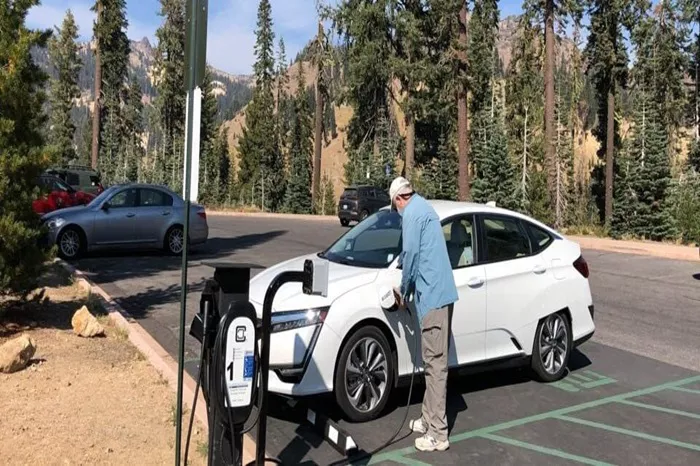Oregon’s Attorney General, Dan Rayfield, is joining a lawsuit against the U.S. Department of Transportation and the Federal Highway Administration (FHWA) for withholding hundreds of millions of dollars in funding for electric vehicle (EV) chargers that had already been approved by Congress.
The lawsuit, filed on Wednesday in U.S. District Court in Seattle, is led by attorneys general from Washington, California, and Colorado, along with 13 other Democratic states. The defendants include U.S. Transportation Secretary Sean Duffy and FHWA Acting Administrator Gloria Shepherd.
The coalition of states argues that only Congress, not federal agencies or the president, has the authority to rescind or withhold grant funding. The grants were part of the National Electric Vehicle Infrastructure (NEVI) program, a key initiative within the Bipartisan Infrastructure Investment and Jobs Act (IIJA) passed in 2022, which allocated $5 billion to build EV charging networks across the country. States had already submitted plans for the infrastructure, and funding had been approved by the FHWA. However, the federal agencies have put the remaining funds on hold, creating significant delays.
In Oregon, the state was awarded $52 million in 2021 for the development of EV chargers and infrastructure over five years. Attorney General Rayfield highlighted the importance of this funding in the state’s effort to meet its climate goals and expand its charging network. He emphasized that Oregon needs five times more public chargers along its highways by 2030 to keep up with the growing number of electric vehicles on the road. Without the necessary funding, Oregon risks falling behind on its climate commitments, and drivers may face insufficient charging infrastructure.
“Oregon’s own analysis shows we need five times more public EV chargers along our highways by 2030 just to keep up with the number of electric cars hitting the roads,” Rayfield said. “If federal funding is delayed or cut off, it puts us at serious risk of falling behind on our climate goals and leaves drivers without the charging infrastructure they need.”
This legal action underscores the growing tension between states and federal agencies over the implementation of electric vehicle infrastructure, which is considered vital for the nation’s transition to clean energy and reducing carbon emissions. As the lawsuit moves forward, the outcome could determine how the federal government approaches infrastructure funding and its role in supporting states’ green initiatives.
Related topics:
- Volkswagen’s Elli to Expand EV Charging at UNITI Gas Stations Across Germany
- LG Energy Solution Buys GM’s Stake in Michigan Battery Plant for $2 Billion
- Automotive Fasteners Market Set to Reach US$ 36.85 Billion by 2032

